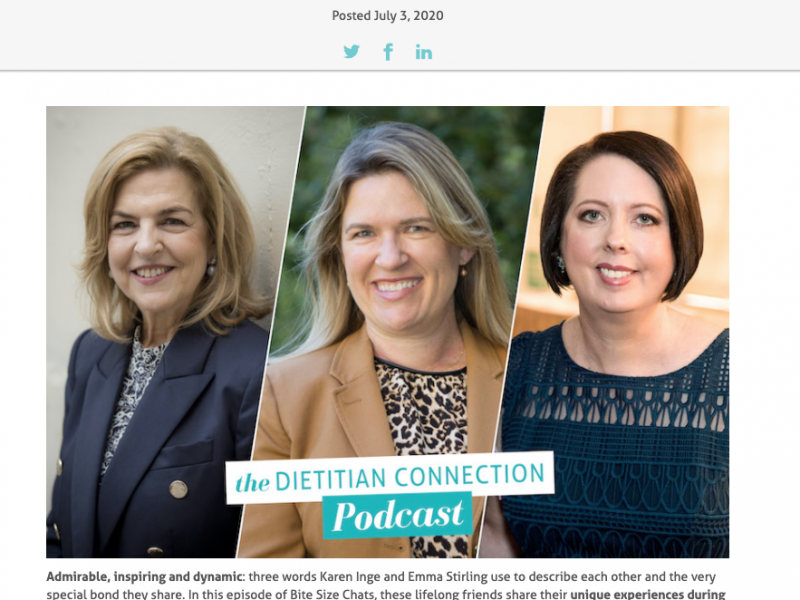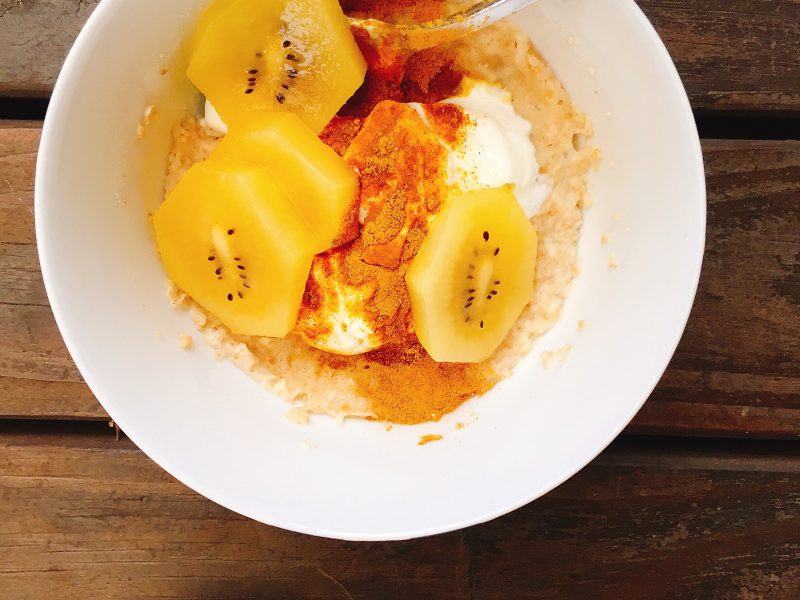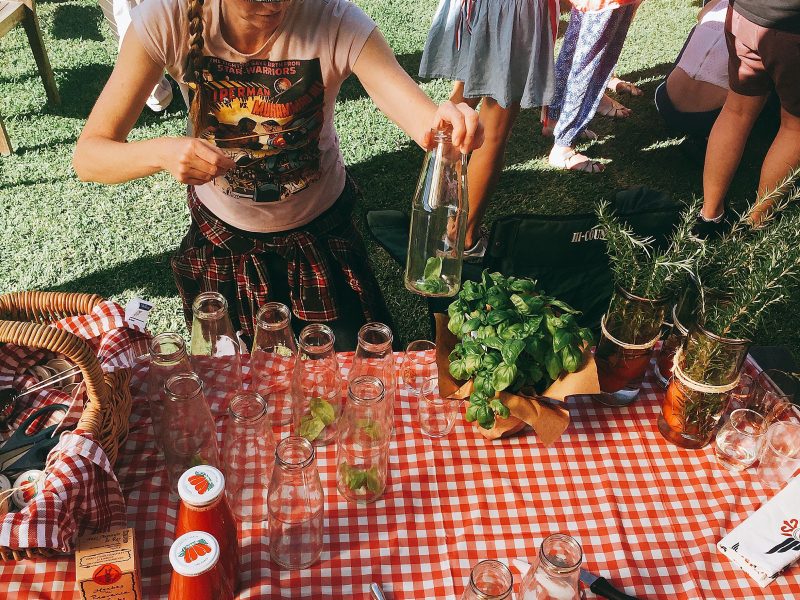Could donning an apron and getting creative in the kitchen solve some of the world’s health and financial issues? I sure think so. But like anything these days, we need the evidence to show it. Our Sub of the Month is passionate about cooking skills, just like me, so we sent her off to investigate research on cooking for good health.
Nickie Hursthouse, APD was the Scoop May Sub of the Month. Nickie is a Kiwi born and bred, and now a Melbourne-based APD. Nickie has always had a passion for food, whether it be sharing it with friends and family, cooking, baking, sourcing new recipes or eating out. Nickie uses cooking and baking as a form of relaxation after fast-paced days at work in the hospital setting. Nickie is inspired to help individuals establish a healthy relationship with food to assist them in taking ownership over their nutrition and health and believes having the knowledge and confidence to cook is an integral part of this. She also has her own blog The Good Wolf Manifesto where she shows people how to to take a holistic approach to health and wellbeing.
Cooking is the one process in our life that truly connects nature to culture. Yet over the recent years the way we shop, cook, eat and think about food has continually changed. The Heart Foundation reports that 80% of individuals now eat out of home at least one day per week, while the obsession with watching food television has steadily increased. But are the statistics accurate and do we need to see a shift in attitude for individuals to appreciate that a nutritious, home-cooked food is a health investment?
Cooked heads to the best sellers lists
Cooking is, as the anthropologists tell us, a defining human activity. And there have been many a celebrity chef’s cookbook on the best seller lists. But over the past week I have begun my journey through, food activist and journalist, Michael Pollan’s new book Cooked: A Natural History of Transformation. The new book delves into uncharted territory to discover the power of the four classic elements – fire, water, air and earth – to transform products of nature into delectable culinary delights to both eat and drink. Pollan argues that home cooking may be the single most important thing an ordinary person can do to reclaim the food system. He writes:
Cooking has the power to transform more than plants and animals. It transforms us, too, from mere consumers into producers. Not completely, not all the time, but I have found that even to shift the ratio between these two identities a few degrees toward the side of production yields deep and unexpected satisfactions.
Nutritious research bites
The Dietitians Association of Australia commissioned the Young Women’s Nutrition Study earlier this year and found that a dislike of cooking is linked with a lower intake of fruit and vegetables, and eating prepared/convenience food away from home is associated with a poorer diet, higher in total and saturated fat. In addition to the above study, a survey in Melbourne of 1000 women found that women who ate two or more serves of vegetables per day also planned their meals, enjoyed cooking and liked trying new recipes.
Another study used a cooking skill scale to assess cooking skills in European Adults. Findings agree with the above as cooking skills correlated positively with weekly vegetable consumption, but negatively with weekly convenience food consumption frequency. Nutrition researcher and chef Mel Haynes found that, being proficient in basic cooking skills was the underlying motivation to prepare meals, while a lack of skills was one of the biggest barriers to cooking. You can read more about her research in our archived post here.
Cook and save
The benefits do not stop with nutrition. In areas all over Southern Europe, individuals are reverting back to home cooking with seasonal produce to save money during the financial crisis. It is reported that 1/3 of all Italians are now making pizza at home and 19% are making their own bread – this is a record high since World War II.
But wait there’s more…
There is also a benefit to mental health and family relationships, as Michael Pollan states; “A shared meal is no small thing. It is a foundation of family life, the place where our children learn the art of conversation and acquire the habits of civilization: sharing, listening, taking turns, navigating differences, arguing without offending”.
Source: smallequals.tumblr.com via Emma on Pinterest
Cooking skills used to be passed down from generation to generation, but this trend has been broken and now millions of people lack even the most basic of skills. We are lucky here in Australia to have people like Stephanie Alexander promoting her Schools Kitchen Garden Foundation and Jamie Oliver being able to launch his Ministry of Food cooking classes. Another initiative by Jamie Oliver, is the recently held Food Revolution Day, designed to inspire individuals to get back in the kitchen and better connected with their food. Make sure you check out all the amazing recipes the Scoop Nutrition community cooked up on Food Revolution Day.
So cooking skills and home-cooked food is not just about the nutritional benefits. It is about money saving, improving your health literacy and knowing where your food comes from. But could this be the answer to the obesity epidemic, to get more people into the kitchen? Or the answer to the world financial crisis, to get more people buying local produce and/or growing their own food? I sure think so. It seems so simple, but how do we make it happen? Maybe Michael Pollan has the answer – I will keep reading Cooked: A history of transformation, to find out, and let you know.
Editor’s comment: Thanks Nickie for the great post and your time as Sub of the Month. I’d love to hear if our lovely readers agree? Have you read Cooked? Do you have any other evidence for the benefits of cooking skills?





